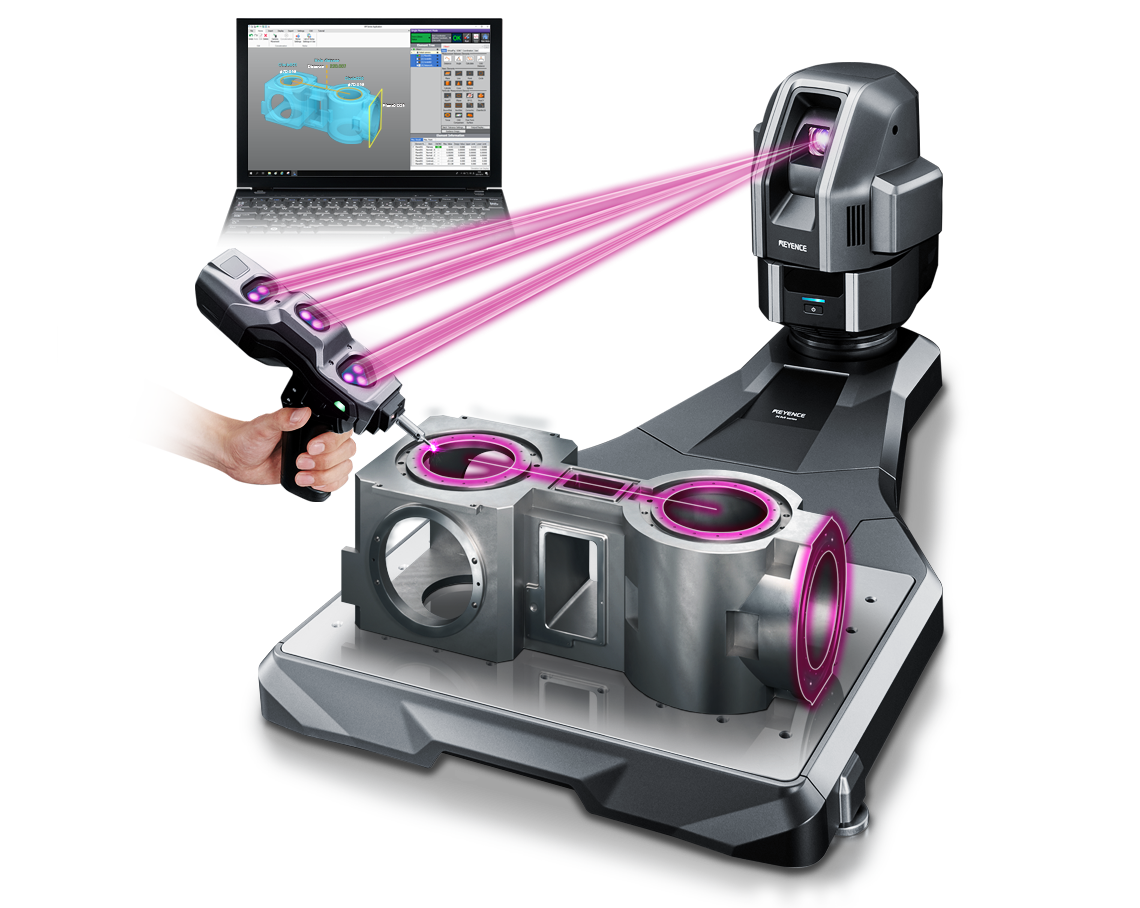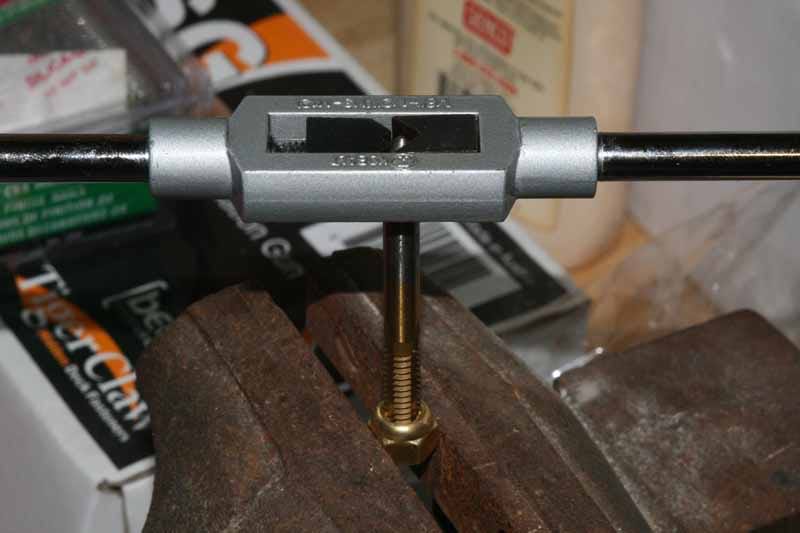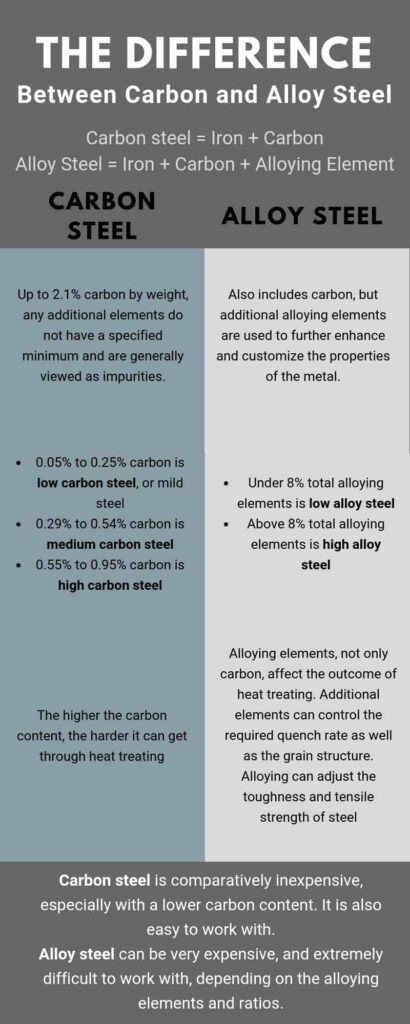Table of Contents
When it comes to precise measurements, you need the right tools for the job. That’s where CMM machines come in. These advanced devices are revolutionizing the field of metrology, providing accurate and reliable measurements for a wide range of industries. From aerospace to automotive, CMM machines are the go-to choice for businesses that demand precision. In this article, we’ll explore the world of CMM machines, their capabilities, and how they are transforming the way we measure and inspect various components.
CMM, short for Coordinate Measuring Machine, is a sophisticated tool used to measure the physical characteristics of an object with incredible accuracy. These machines utilize a combination of sensors, probes, and software to capture precise data points and create a detailed 3D representation of the object being measured. With their ability to measure complex geometries and tight tolerances, CMM machines have become indispensable in industries where precision is paramount. Whether it’s ensuring the quality of a manufactured part or reverse engineering an existing component, CMM machines provide the accuracy and reliability needed to get the job done right.
Now that we have a brief introduction to CMM machines, let’s dive deeper into their features, applications, and the benefits they offer to various industries. So, buckle up and get ready to explore the fascinating world of CMM machines and their role in achieving precise measurements.
CMM Machines: Advanced Tools for Precise Measurements
CMM machines, also known as Coordinate Measuring Machines, are advanced tools used for precise measurements in various industries. These machines are equipped with high-precision sensors and software that allow them to accurately measure the dimensions and geometric features of objects. CMM machines play a crucial role in quality control, inspection, and dimensional analysis processes, ensuring that manufactured parts meet the required specifications.
How CMM Machines Work
CMM machines work on the principle of 3D coordinate measurement. They have a moving probe that touches various points on an object’s surface and records the coordinates of those points. These measurements are then compared to the CAD (Computer-Aided Design) model of the object to determine any deviations from the intended dimensions. The machine’s software processes the collected data and generates detailed reports, providing valuable insights into the accuracy and quality of the manufactured parts.
CMM machines come in different types, including bridge-type, gantry-type, and portable CMMs. Each type has its own advantages and is suitable for specific applications. Bridge-type CMMs are widely used in industries such as automotive, aerospace, and manufacturing, where high accuracy and precision are required. Gantry-type CMMs are ideal for measuring large and heavy objects, such as automobile body frames or aircraft components. Portable CMMs offer flexibility and convenience, allowing measurements to be taken directly on the shop floor or in the field.
The Benefits of Using CMM Machines
CMM machines offer numerous benefits to industries that require precise measurements. Here are some key advantages:
- Accuracy: CMM machines provide highly accurate measurements, ensuring that manufactured parts meet the required specifications. This helps prevent costly errors and ensures consistent quality.
- Time-saving: CMM machines can perform measurements quickly and efficiently, reducing the time required for inspection and quality control processes. This allows for faster production cycles and improved productivity.
- Automation: CMM machines can be programmed to perform measurements automatically, eliminating the need for manual measurements. This reduces human errors and increases the reliability of the measurement results.
- Data Analysis: CMM machines generate detailed reports and visual representations of the measured data, making it easier to analyze and interpret the results. This helps in identifying trends, patterns, and potential issues in the manufacturing process.
Applications of CMM Machines
CMM machines find applications in various industries, including:
- Automotive: CMM machines are used to measure the dimensions of engine components, body parts, and other critical parts in the automotive industry. This ensures that the parts fit together correctly and meet the required specifications.
- Aerospace: CMM machines play a crucial role in the aerospace industry, where precision and accuracy are paramount. They are used to measure aircraft components, turbine blades, and other critical parts to ensure their compliance with strict quality standards.
- Manufacturing: CMM machines are extensively used in the manufacturing industry for quality control and inspection purposes. They help in verifying the dimensions, shape, and position of manufactured parts, ensuring that they meet the required specifications.
- Medical: CMM machines are used in the medical industry to measure and inspect medical devices, implants, and prosthetics. This ensures that these products are safe, reliable, and meet the necessary standards.
Overall, CMM machines are indispensable tools for industries that require precise measurements. They help in ensuring the quality, accuracy, and reliability of manufactured parts, leading to improved product performance and customer satisfaction.
Key Takeaways: CMM Machines – Advanced Tools for Precise Measurements
- CMM machines are advanced tools used for precise measurements in various industries.
- They employ a combination of sensors, probes, and software to measure dimensions accurately.
- These machines can measure complex shapes, ensuring high precision and repeatability.
- They play a crucial role in quality control and ensuring product conformity.
- With their advanced features, CMM machines save time and improve productivity in manufacturing processes.
Frequently Asked Questions
What are CMM machines and how do they work?
CMM machines, also known as Coordinate Measuring Machines, are advanced tools used for precise measurements in various industries. They work by using a probe attached to a movable arm or gantry system. The probe is guided along the surfaces of the object being measured, collecting data points at specific coordinates.
The collected data is then processed by specialized software, which analyzes the points and generates accurate measurements of the object’s dimensions and features. CMM machines can measure a wide range of parameters, including length, width, height, angles, and even complex geometric shapes with high precision.
What are the advantages of using CMM machines for measurements?
CMM machines offer several advantages over traditional measurement methods. Firstly, they provide highly accurate and repeatable results, ensuring precision in manufacturing processes. This accuracy helps in reducing errors and improving overall quality control.
In addition, CMM machines are capable of measuring complex geometries that may be difficult or time-consuming to measure manually. They can also measure multiple features simultaneously, saving time and increasing efficiency. Furthermore, CMM machines can generate detailed reports and statistical analysis, enabling better decision-making and process optimization.
Which industries benefit from using CMM machines?
CMM machines find applications in a wide range of industries, including aerospace, automotive, medical, electronics, and manufacturing. In the aerospace industry, CMM machines are used to ensure the precise dimensions and tolerances of aircraft components. In the automotive industry, they are used for quality control and inspection of parts.
In the medical field, CMM machines play a crucial role in ensuring the accuracy of medical devices and implants. They are also used in electronics manufacturing to measure circuit boards and components. Overall, any industry that requires precise measurements and quality control can benefit from the use of CMM machines.
What are the different types of CMM machines?
There are various types of CMM machines available, including bridge-type, gantry-type, and portable CMMs. Bridge-type CMM machines have a stationary base with a moving bridge that holds the measuring probe. Gantry-type CMM machines have a movable gantry system that carries the probe, allowing for larger workpieces to be measured.
Portable CMM machines, on the other hand, are lightweight and can be easily transported to different locations. They are often used for on-site measurements or in industries where mobility is essential. Each type of CMM machine has its own advantages and is chosen based on the specific requirements of the application.
What factors should be considered when choosing a CMM machine?
When choosing a CMM machine, several factors should be taken into consideration. Firstly, the size and weight of the objects to be measured should be considered to ensure that the CMM machine can accommodate them. The required measurement accuracy and precision should also be evaluated, as different machines have varying levels of accuracy.
The type of probe and measuring system, as well as the software capabilities, should be assessed to meet the specific measurement needs. Additionally, factors such as cost, maintenance requirements, and after-sales support should be considered to make an informed decision. Consulting with experts and conducting thorough research can help in selecting the right CMM machine for the intended application.
Final Summary: CMM Machines Revolutionize Precision Measurements
When it comes to precision measurements, CMM machines are the advanced tools that have taken the industry by storm. These incredible machines have not only revolutionized the way we measure and inspect objects, but they have also set new standards for accuracy and efficiency. In this article, we explored the various features and benefits of CMM machines, shedding light on their importance in industries such as manufacturing, aerospace, and automotive.
One of the key takeaways is that CMM machines offer unparalleled accuracy, allowing for precise measurements and inspections of complex geometries. With their advanced technology and sophisticated software, these machines can capture even the smallest details, ensuring that no imperfections go unnoticed. This level of precision is crucial in industries where quality control plays a critical role in ensuring safety and reliability.
Moreover, CMM machines are incredibly versatile, capable of measuring objects of different shapes, sizes, and materials. Whether it’s a small intricate component or a large-scale structure, these machines can handle the task with ease. This versatility makes them indispensable in industries that deal with a wide range of products and materials.
In conclusion, CMM machines have proven to be game-changers in the world of precision measurements. Their accuracy, efficiency, and versatility have elevated the standards of quality control and inspection. As technology continues to advance, we can expect further innovations in CMM machines, making them an essential tool for industries that prioritize precision and reliability. So, embrace the power of CMM machines and unlock a new level of precision in your measurements.
Request a quote today!
[contact-form-7 id="1578" title="Contact form"]
Please compress the file into a ZIP or RAR file before uploading. Alternatively, send through your RFQ by email.
enquires@unitymanufacture.com





